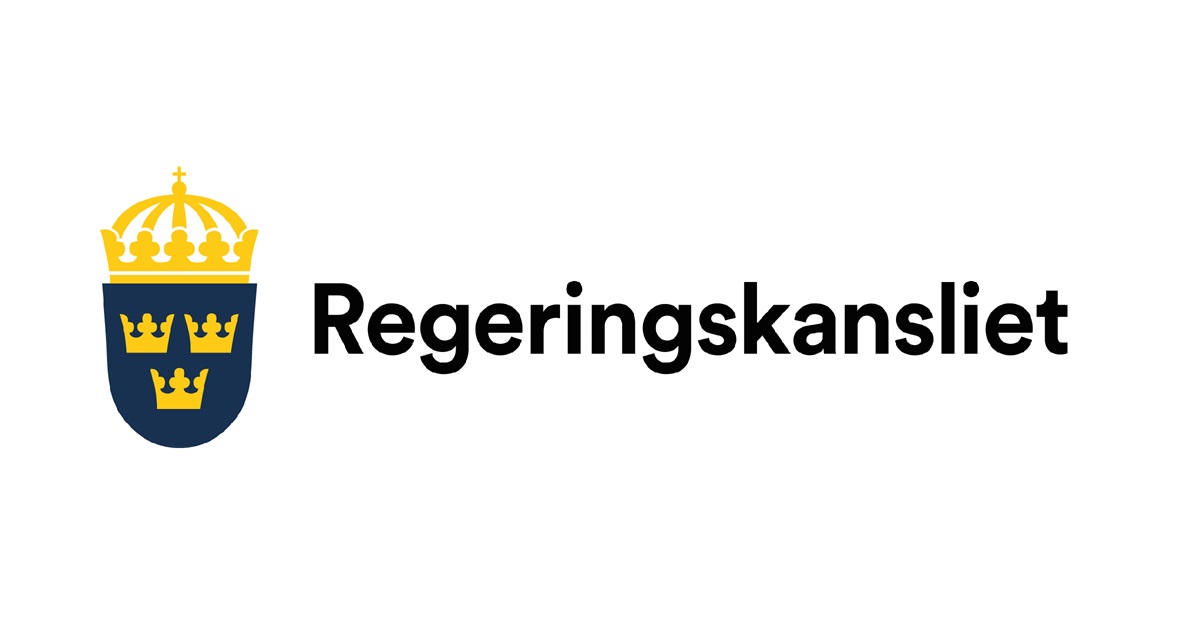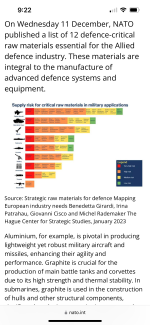"Exclusive: Trump transition team plans sweeping rollback of Biden EV, emissions policies
Dec 16 (Reuters) - Incoming U.S. President
Donald Trump’s transition team is recommending sweeping changes to cut off support for electric vehicles and charging stations and to strengthen measures blocking cars, components and battery materials from China, according to a document seen by Reuters.
The recommendations, which have not been previously reported, come as the U.S. electric-vehicle transition stalls and China’s heavily subsidized EV industry continues to surge, in part because of its superior battery supply chain. On the campaign trail, Trump vowed to ease regulations on fossil-fuel cars and roll back what he called President
Joe Biden’s EV mandate.
The transition team also recommends imposing tariffs on all battery materials globally, a bid to boost U.S. production,
and then negotiating individual exemptions with allies, the document shows.
Taken together, the recommendations are a stark departure from Biden administration policy, which sought to balance encouraging a domestic battery supply chain, separate from China, with a rapid EV transition. The transition-team plan would redirect money now flowing to building charging stations and making EVs affordable into national-defense priorities, including securing China-free supplies of batteries and the critical minerals to build them.
The proposals came from a Trump transition team charged with crafting a strategy for swift implementation of new automotive policies. The team also calls for
eliminating the Biden administration’s $7,500 tax credit for consumer EV purchases, a plan that Reuters first reported last month. The policies could strike a blow to U.S. EV sales and production at a time when many legacy automakers, including General Motors
(GM.N), opens new tab and Hyundai
(005380.KS)
, opens new tab, have recently introduced a wider array of electric offerings to the U.S. market.
Jason Miller, a Trump transition senior adviser, said on Tuesday that the recommendations come from “outsiders who have no role in charting administration policy.”
Cutting government EV support could also hurt sales of
Elon Musk’s Tesla
(TSLA.O)
, opens new tab, the dominant U.S. EV seller. But Musk, who
spent more than a quarter-billion dollars helping to elect Trump, has said that losing subsidies would hurt rivals more than Tesla."
The transition team calls for clawing back whatever funds remain from Biden’s $7.5 billion plan to build charging stations and shifting the money to battery-minerals processing and the "national defense supply chain and critical infrastructure.”
While batteries, minerals and other EV components are “critical to defense production,” electric vehicles “and charging stations are not,” the document says.
The Defense Department in recent years has highlighted U.S. strategic vulnerabilities because of China’s dominance of the mining and refining of critical minerals, including
graphite and lithium needed for batteries, and rare-earth metals used in both EV motors and military aircraft.
A 2021 government report said the U.S. military faces “escalating power requirements” for weapons and communication equipment, among other technologies. “Assured sources of critical minerals and materials” are “
critical to U.S. national security,” the report found.
*
Trump transition spokeswoman Karoline Leavitt said voters gave Trump a mandate to deliver on campaign promises, including stopping government attacks on gas-powered cars.
"When he takes office, President Trump will support the auto industry, allowing space for both gas-powered cars and electric vehicles," Leavitt said in a statement.
ALLOWING MORE TAILPIPE POLLUTION
Automakers globally have been shifting toward electric vehicles in part to comply with stricter government limits on climate-damaging tailpipe pollution.
But the transition team recommendations would allow automakers to produce more gas-powered vehicles by rolling back emissions and fuel-economy standards championed by the Biden administration. The transition team proposes shifting those regulations back to 2019 levels, which would allow an average of about 25% more emissions per vehicle mile than the current 2025 limits and average fuel economy to be about 15% lower.
The proposal also recommends blocking California from
setting its own, stricter vehicle-emissions standards, which more than a dozen other states have adopted. Trump barred California from setting tougher requirements during his first term, a policy that Biden reversed.
California has asked the U.S. Environmental Protection Agency for another waiver to incorporate a stronger set of requirements beginning in 2026, which would eventually require all vehicles to be electric, plug-in hybrid or hydrogen-powered by 2035. The Biden administration’s EPA has not approved California’s request.
Many of the transition-team proposals appear aimed at encouraging
domestic battery production,
primarily for defense-related interests. Others appear aimed at protecting automakers, even those producing EVs, in the United States.
The proposals include:
– Instituting tariffs on “EV supply chain” imports including batteries, critical minerals and charging components. The proposal viewed by Reuters said the administration should use Section 232 tariffs, which target national security threats, to limit imports of such products.
The Biden administration recently increased tariffs on Chinese imports of several mentioned in the Trump-transition document, including lithium-ion batteries, graphite and “permanent magnets” used in EV motors and military applications. Those tariffs were issued on economic rather than security grounds.
– Waiving environmental reviews
* to speed up “federally funded EV infrastructure projects,” including battery recycling and production, charging stations and critical mineral manufacturing.
– Expanding export restrictions on EV battery technology to adversarial nations.
– Providing support for exports of U.S.-made EV batteries through the Export-Import Bank of the United States.
– Using tariffs as a “negotiating tool” to open foreign markets to U.S. auto exports, including EVs.
– Eliminating requirements that federal agencies purchase EVs. A Biden policy requires all federal acquisitions of cars and smaller trucks to be zero-emission vehicles by the end of 2027.
– Ending DOD programs aimed at purchasing or developing electric military vehicles."
*I think of ASN
Even if one can argue about what he intends to do, I stay out of it. I am glad that our society here does not have to choose between only two parties. Anyway, after reading this, our visit recently has taken a new meaning for me.
*I think of:
"US Homeland Security and MSB visited Talga
June 12, 2024:
On Wednesday, Talga received a visit from the US Department of Homeland Security (DHS) and the Swedish Civil Contingencies Agency (MSB) at Talga's EVA pilot plant in Luleå. The visit took place as part of a bilateral security cooperation between Sweden and the United States, where supply chain security is one of the topics. The meeting was attended by DHS Chief of Research Dr. Dimitri Kusnezov and MSB Director General Charlotte Petri Gornizka.
From left: Dr. Dimitri Kusnezov, Under Secretary of Science and Technology - DHS; Charlotte Petri Gornizka, Director General - MSB; Martin Phillips, CEO - Talga; Anna Motta, Chief Technology Officer - Talga.
A delegation from DHS and MSB visited Luleå on Wednesday for various study visits and meetings on common security issues, where Talga's CEO Martin Phillips had the opportunity to talk about the integrated value chain for battery anode materials that Talga is building in northern Sweden.
Talga CEO Martin Phillips commented:
"A pan-European battery anode value chain is a cornerstone for securing the future energy supply of Europe and ultimately the Western world. We are pleased to discuss these perspectives with esteemed government representatives from both Sweden and the United States and together seek new solutions to tomorrow's challenges.
The Swedish government, represented by the Ministry of Defense, signed in 2007 an agreement on research and development cooperation in the broad field of civil security with the US government, represented by the Department of Homeland Security (International Agreement SO 2007:63). This has been complemented in 2024 by an
operational cooperation agreement between MSB and FEMA.
The DHS is an umbrella department with approximately 260 000 employees and a number of associated expert agencies, such as the Federal Emergency Management Agency (FEMA), the Cybersecurity Agency (CISA), the Secret Service, the Coast Guard, and agencies with missions in transportation security, immigration, and border security.
The DHS delegation was led by Dr. Dimitri Kusnezov, Director of the DHS Science
and Technology Directorate (S&T ) Knowledge Sharing Division, which is the counterpart to MSB under a joint cooperative agreement.
"With all the technology we surround ourselves with, there are of course security aspects where authorities have to look to the companies where the innovation comes from. We need to reflect together on these issues contextually and not just strictly commercially."
Dr. Dimitri Kusnezov, Under Secretary for Science & Technology, Department of Homeland Security, commented to the media on site at Talga.
The MSB delegation was represented by Director General Charlotte Petri Gornizka who visited Luleå together with both expert staff and those responsible for coordination between MSB and DHS.
"Since its inception in 2007, the cooperation between the United States and Sweden has focused on research and development issues. Our visit shows the importance of jointly prioritizing issues related to systems and technologies for resilience, where green transition and security of supply are central to total defense"
commented Charlotte Petri Gornizka, Director General of MSB."
12 juni 2024: Under onsdagen fick Talga besök av amerikanska Department of Homeland Security (DHS) och Myndigheten för Skydd och Beredskap (MSB) vid Talgas …

www.talgagroup.com
=>
"MSB signed cooperation agreement with FEMA
On May 7, DG MSB signed a cooperation agreement with the US Federal Emergency Management Agency (FEMA).
FEMA's Chief Administrator Deanne Criswell and MSB Director General Charlotte Petri Gornitzka.
The agreement complements the research and development agreement that Sweden has had with DHS since 2007. The agreement allows for a broader and deeper partnership and more effective cooperation on operational matters.
This further contributes to strengthening the bilateral relationship with the United States in the areas of civil preparedness and security.
Examples of areas of cooperation:
- Methodology and technology development for civil protection including new energy management and CBRNE security
- Security of supply, including cooperation with the business community
- Civil society and individual preparedness
- Impact of climate change on security
- Exercise"
Den 7 maj undertecknade GD MSB ett samarbetsavtal med amerikanska Federal Emergency Management Agency (FEMA).
www.msb.se
"About MSB
The Social Security and Pensions Authority (MSB) strengthens society in preventing and overcoming accidents, crises and the consequences of war. We protect human life and health, the functioning of society and fundamental values such as democracy, the rule of law and human rights. A high level of trust and close cooperation with stakeholders are the key to our success."
The United States Department of Homeland Security comprises 22 existing federal agencies, including the Federal Emergency Management Agency (FEMA).







